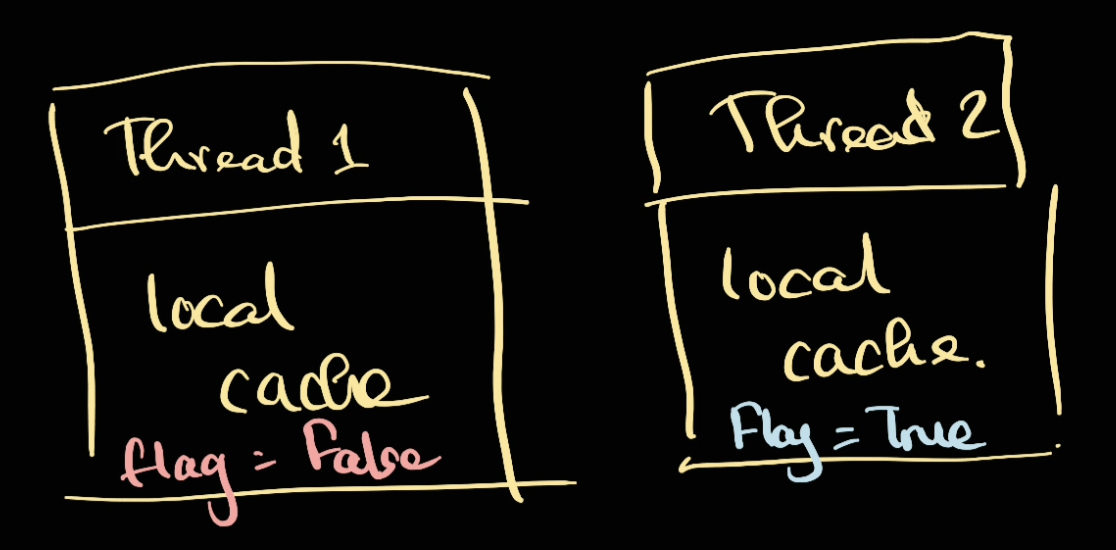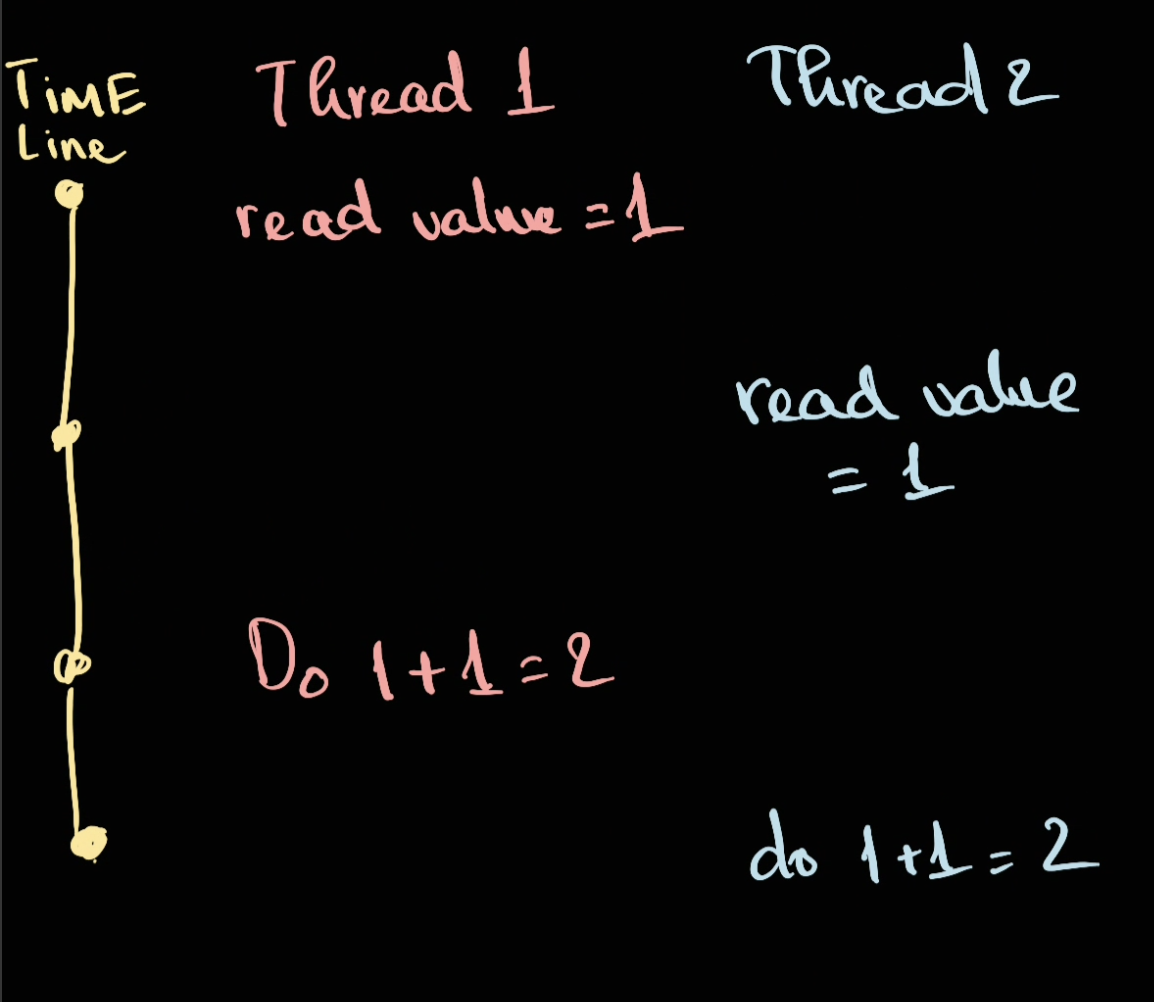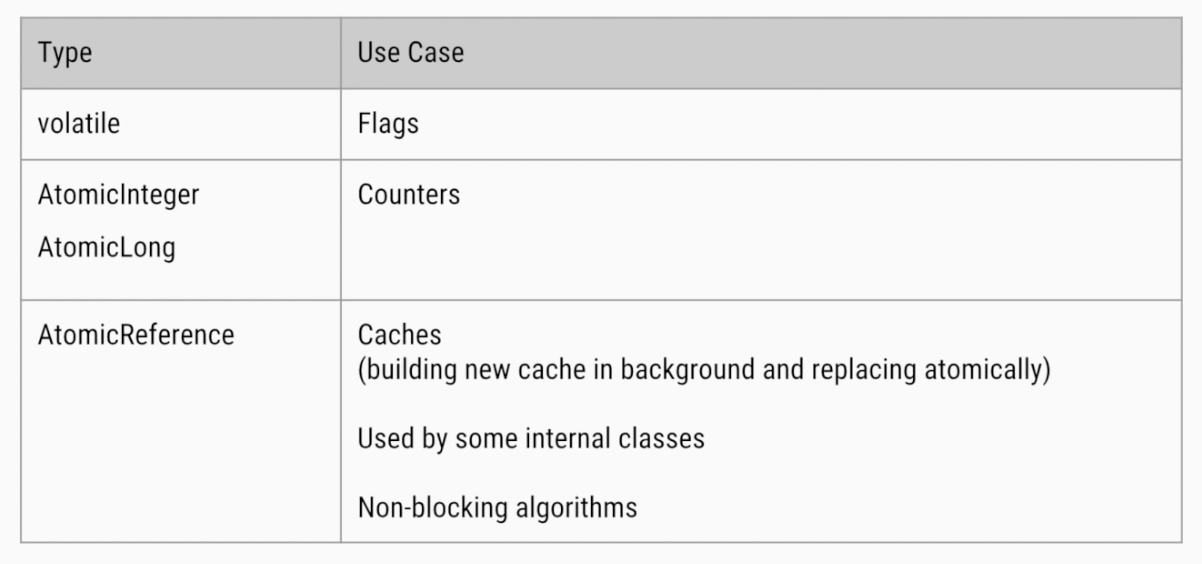Volatile
Description
For example, if we have 2 thread, running the same piece of code.
Thread 1: Control the variable flag
boolean flag = true
flag = false
Thread 2: Monitor the flag variable to process some code
boolean flag = true
while (flag) {
// processing
}
Given this code running as this, it wouldn't work because both thread 1 and thread 2 all have its own local cache containing its own value of flag:

To tell Java flush this cache, we declare as volatile
So:
volatile boolean flag = true
Doing this will make thread 2 cache update the newest state of flag
[!Note]
In reality, withoutvolatilemight or might not work depends on if the JVM decided to cache it. However to be sure, we always explicitly declarevolatile
Gotcha
For example the same part of code, if we have
volatile int value = 1
And we have
Thread 1:
value++
Thread 2:
value++
This will not work because volatile solves visibility problem not concurrency problem
- Visibility problem happens when 1 thread cannot see the value of another thread.
In this case, the flow for Thread 1 and Thread 2 happens as below:

As a result, it's not guarantee that Thread 2 has the latest value of Thread 1.
To solve this, we use Synchronisation or we can use some threadsafe class like AtomicInteger
